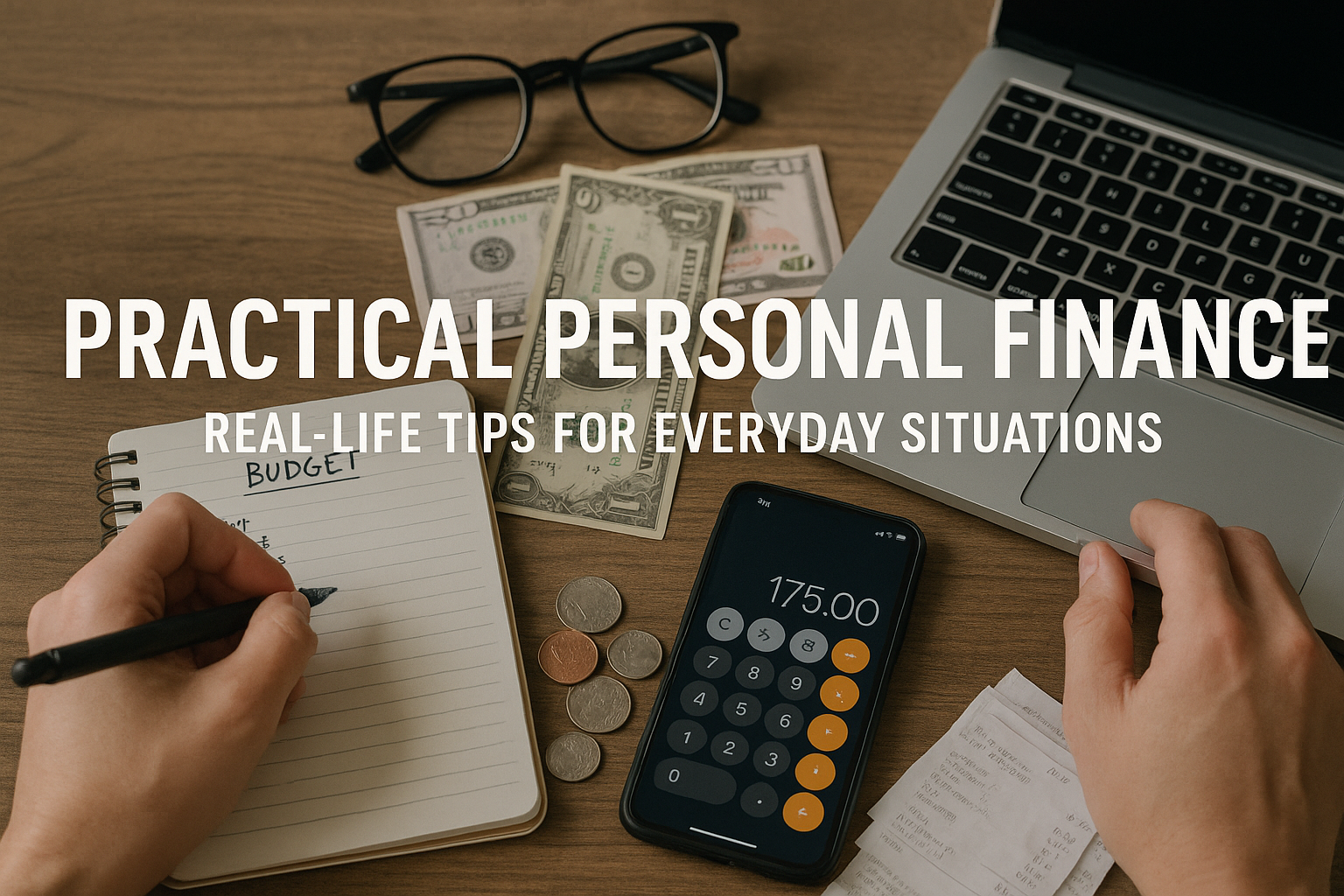Personal finance isn’t just about creating budgets or opening investment accounts. It’s about making smart money decisions in your daily life. Whether you’re buying groceries, managing bills, or planning a vacation, everyday financial choices matter. In this guide, we’ll explore practical personal finance tips that you can apply immediately — no financial degree required.
Start with the Basics: Track Your Spending
One of the most effective ways to take control of your finances is by simply knowing where your money goes. Many people are surprised by how much they spend on non-essential items without realizing it.
Use Simple Tools
- Apps: Try apps like Mint, PocketGuard, or EveryDollar.
- Spreadsheets: A basic Excel or Google Sheet can work wonders.
- Notebooks: If you prefer writing things down, track every purchase for one month.
Once you see patterns in your spending, you can make better choices moving forward.
Make a Budget That Fits Your Lifestyle
Budgeting doesn’t mean giving up all the fun. Instead, it helps you spend intentionally. If your budget feels too restrictive, you’re less likely to stick to it.
Use the 50/30/20 Rule
- 50%: Essentials (rent, groceries, utilities)
- 30%: Wants (entertainment, eating out)
- 20%: Savings and debt repayment
Adjust these percentages as needed based on your income and goals.
Meal Prep to Save on Food
One of the largest variable expenses for many people is food — especially eating out. Cooking at home not only saves money but also helps you eat healthier.
Quick Tips:
- Plan your meals on Sunday.
- Shop with a grocery list to avoid impulse buys.
- Cook in bulk and freeze leftovers.
- Use discount cards and coupons.
You don’t have to be a gourmet chef — even basic meals like rice, pasta, or stir-fry can save you hundreds monthly.
Manage Subscriptions and Recurring Charges
It’s easy to forget about small monthly charges that slowly drain your bank account. From streaming services to app subscriptions, these charges can add up fast.
How to Handle Them:
- Review your bank statement for recurring charges.
- Cancel services you no longer use.
- Use tools like Truebill or Rocket Money to identify and manage subscriptions.
Cutting even $30/month means an extra $360 a year in your pocket.
Use Cash-Back and Rewards Wisely
If you’re disciplined with your spending, using cash-back credit cards can provide some extra value. But this only works if you pay your balance in full every month.
Pro Tips:
- Use cash-back cards for planned purchases only.
- Redeem points or rewards for gift cards or statement credits.
- Avoid cards with high annual fees unless the benefits clearly outweigh the costs.
Build an Emergency Buffer
Emergencies happen — car breakdowns, medical bills, or sudden job loss. A small emergency fund can prevent you from going into debt.
- Aim to save $500 to $1,000 as a starting goal.
- Keep it in a separate, easily accessible savings account.
- Replenish it quickly if you need to use it.
This is one of the most empowering steps you can take to gain financial stability.
Shop Smarter Every Day
From clothes to household goods, being intentional with your purchases helps you avoid buyer’s remorse.
Tips to Shop Smart:
- Wait 24 hours before buying non-essential items.
- Compare prices online before purchasing.
- Shop off-season for clothing and travel.
- Use price-tracking tools like Honey or CamelCamelCamel.
Also, consider buying used when possible — thrift stores, local marketplaces, or refurbished tech can save you hundreds.
Pay Bills on Time
Paying bills late not only costs you extra money in late fees, but it can also hurt your credit score.
- Set up automatic payments when possible.
- Use reminders on your phone or calendar.
- Consider syncing all bills to the same day each month to stay organized.
A little planning can eliminate stress and protect your financial future.
Don’t Neglect Financial Education
Learning about money shouldn’t stop after one article or one book. The more you know, the better your decisions become.
Easy Ways to Keep Learning:
- Podcasts: The Ramsey Show, So Money, Afford Anything
- Books: The Simple Path to Wealth, I Will Teach You to Be Rich
- YouTube Channels: Graham Stephan, The Financial Diet
Even 10 minutes a day of learning adds up fast.
Use the “Pay Yourself First” Strategy
This means setting aside money for savings or investing before spending on anything else. When you treat savings like a mandatory bill, it becomes a habit.
- Set up automatic transfers right after payday.
- Start small — even 5% of your income makes a difference.
- Increase the amount gradually over time.
Turn Good Habits into Financial Freedom
Practical personal finance isn’t about being perfect — it’s about making smarter choices every day. When you track spending, budget wisely, prepare for emergencies, and stay curious, your money begins working for you. Don’t wait until your finances are “perfect” to start making improvements. The best time to take action is right now, with what you already have.
